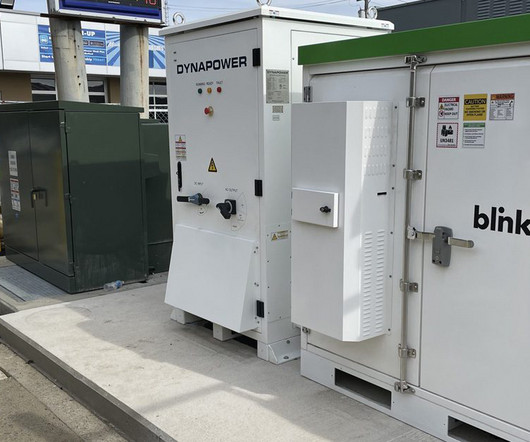How Automotive Dealerships Can Save Money with Battery Energy Storage
Blink Charging
FEBRUARY 1, 2024
As dealerships embrace electrification to maintain competitiveness , it’s crucial to also explore the benefits of integrating battery energy storage systems (BESS). Discover key insights into incorporating battery storage for your dealership’s sustainable energy storage. What are battery energy storage systems?















Let's personalize your content